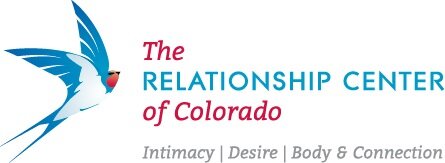Are You Doomed for Divorce?
/Believe it or not there are certain risk factors associated with divorce. Just like someone who may eventually have heart disease there are certain factors to take into account that may increase the risk of developing heart disease. This doesn’t mean the person will definitely develop heart disease, but rather the person is at risk. Knowing the risk factors means that action can be taken now to lessen the likelihood of making it reality. The same is true of divorce.
You Got Married Young
According to conventional wisdom (and concerned parents of college sweethearts), the longer you wait to get married, the stronger your bond will be. The latest statistics paint a somewhat more complex picture of the ideal age to get married; but tying the knot in your teens and early 20s still seems to increase divorce risk, compared to getting hitched in your late 20s and early 30s. But waiting just a little longer — until after age 32 — may once again raise your divorce risk, according to an analysis from the Institute of Family Studies.
When you are in your early 20s, your brain is still developing like a teenager’s brain so your action is more impulse driven and emotionally guided. You also have not developed skills to transition from your young, independent, individual thinking and acting to mature, interdependent, relational behaviors and thoughts.
When you are in your late 30s, you might be so focused on your career and/or are so used to living in singlehood that your actions might be more individually driven at this point too. The difference between the individual actions at this stage of your life compared to your actions in your teens and early 20s is that you are a more mature thinker now, and you have explored life more to know your likes and dislikes. That means you might become more set in stone and more used to your ways of living. You might have more fear of changing, which can prevent you from forming a more intimate relationship with your partners. Moreover, because you have been living your individual life, you might be lacking effective, healthy relational skills.
You and Your Spouse Have Different Drinking Habits
If enjoying a bottle of wine together is your idea of a perfect date night but your spouse prefers to stay sober, it may cause some problems down the road. In a 2014 University of Buffalo study, researchers found that among couples in which one person was a heavy drinker and the other wasn’t, 45 to 55 percent got divorced before their 10th anniversary. Meanwhile, when both partners — or neither partner — drank, only around 35 percent of couples split up.
Drinking can actually be used as a misery stabilizer in the relationship. Couples use drinking as a way to cope and with their dissatisfaction, anger, and resentment. Couples also use it to hide the real issues in their relationship dynamics like loss of desire and intimacy, presence of disconnection and absence of honesty and trust.
Moreover, people lose inhibition when they drink so they might start saying what they have been hiding inside of them. They might show their anger and contempt in an ineffective, harmful way that further damages the relationship. As a result, the couples become even more distant from each other, and the relationship becomes even more painful.
You’ve Been Divorced Before
A second or third marriage isn’t doomed, but your odds of lasting for the long haul are slightly lower if you’ve been married and divorced before. About 35% of first marriages end within 10 years, while about 40% of second marriages end within that period, according to CDC data. But of course sometimes, the second or third time's the charm.
Being divorced before does not automatically mean you are doomed for another divorce. It does however increase the chance for second or third divorce, especially if you are still doing the same thing in the new marriage. If this is the case, you are simply changing the scenery but not changing the situation or the behaviors.
So What Does It All Mean?
Just like risk factors of heart disease, there are things you can do to reduce your risk. If you are at risk and want to ensure that your marriage lasts, maybe consider couples therapy. Your relationship doesn’t have to be on the rocks to see a professional. Also, some risk factors can leave old emotional baggage hanging around. Sometimes it is good just to check in with one another with the help of a professional.
Marriage is Work
Marriage is hard work! If you and your significant other need to check-in with one another or reconnect, contact us now to schedule an appointment or check out our Couples Retreat.




